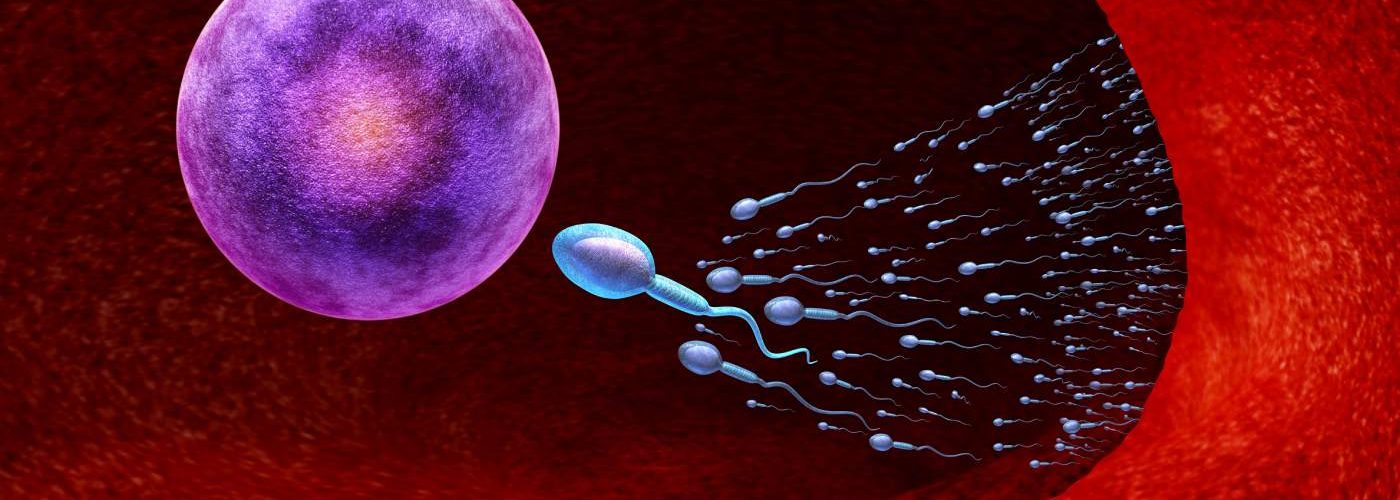
We talk about low sperm count when a seminal sample contains a number of sperm below the normal range. This doesn’t directly cause infertility, but logically, it reduces the chances of conceiving. That is why it is important to conduct the necessary tests to establish a diagnosis and treatment.
Today, we will discuss improving sperm count levels: how long it takes, which foods are essential, and what general lifestyle habits are advisable to address this issue.
Sperm count and male fertility
Sperm production is a complex process that requires normal testicular function. Once produced in the testicles, they are transported until they mix with semen and are ejaculated out of the penis. Problems in any of these steps can affect sperm production. Additionally, it’s important to note that there can also be abnormalities in sperm morphology, motility, and/or function.
To diagnose a low sperm count, it is necessary to conduct tests and undergo a medical history assessment, where all relevant information about the patient will be gathered. The most relevant test is a semen analysis (seminogram), as it allows quantifying the concentration of sperm in a sample.
The World Health Organization sets the normal sperm concentration in an ejaculate at 15-200 million/mL. Based on the obtained value, the following abnormalities are considered:
- Oligozoospermia: Below 15 million/mL
- Cryptozoospermia: Below 100,000/mL
- Azoospermia: Absence of sperm
Having a low sperm count decreases the chances of one of the sperm fertilizing the egg and therefore achieving pregnancy. However, it is still possible to conceive, for example, through assisted reproductive treatments.
What are the signs of low sperm count
The first sign of a possible low sperm count is difficulty achieving pregnancy. Additionally, the effects can include sexual function problems, such as a decrease in libido or difficulty maintaining an erection.
Here are some other symptoms that can be caused by a sperm count below the normal range:
- Pain or swelling in the testicular area
- Decreased facial or body hair
- Other signs of chromosomal or hormonal abnormalities
How to increase sperm count
Adopting a healthy lifestyle is crucial for improving sperm quality. Eliminating toxic habits can be the key. Here are some guidelines to achieve that:
- Eliminate the consumption of drugs, alcohol, and tobacco.
- Avoid using anabolic steroids, as they directly affect sperm production.
- Do not smoke, as nicotine directly affects sperm count.
- Manage stress effectively, as it can impact the hormonal production necessary for sperm production.
- Maintain a healthy weight, as obesity can harm fertility.
It is important to note that in some cases, a lower-than-normal sperm count may occur if the semen analysis is conducted too soon after the last ejaculation. It is also possible that the sample may not have contained enough semen due to issues during collection. For this reason, the results are based on multiple sequential samples taken over time.
How long does it take to improve sperm quality?
This question is often repeated in infertility consultations. The truth is that sperm regeneration is faster than that of female gametes. Improvements in sperm quality can be seen within three months after adopting the necessary measures.
In other words, the sperm regeneration cycle lasts for 90 days. This is an advantage that the male factor presents over the female.
A healthy diet can be a sperm count booster
A healthy and balanced diet can be the key to improving sperm count and quality. Since it takes about 90 days to regenerate sperm, we provide you with some guidelines to follow for a three-month plan.
Vitamins: C, E, beta-carotene, B6, B12, and folic acid are essential.
Vitamins C and E, B12 and B16, as well as beta-carotene and folic acid, are crucial.
Fruits are rich sources of vitamins that should not be missed in a nutrient-rich diet. Citrus fruits, kiwis, and strawberries contain vitamin C. It can also be found in red or green peppers and broccoli. Vitamin E is present in nuts, seeds, and healthy fats like avocados and olive oil.
Other foods that you should include to obtain these vitamins are bananas, dairy products, grains (wheat, corn, rice, oats), red meats, chicken, turkey …
Minerals
Zinc, selenium, and magnesium play a key role in sperm quality. You can find them in red meats, fish, chicken, turkey, liver, eggs, and seafood. They are also present in legumes, leafy green vegetables, and dark chocolate, without milk.
Plant-based Proteins
Proteins should be included in the diet, and you can find them in meats, eggs, and fish. Additionally, you can opt for plant-based protein sources, which can be found in mushrooms, quinoa, nuts, legumes, and leafy green vegetables.
IVI: specialists in male fertility too
At IVI, we can also assist you if the reason for not being able to conceive lies within the male factor. We will conduct tests on both partners and determine the best treatment to help you achieve your goal of becoming parents. Please give us a call or fill out our online form, and our team will contact you directly.





Comments are closed here.